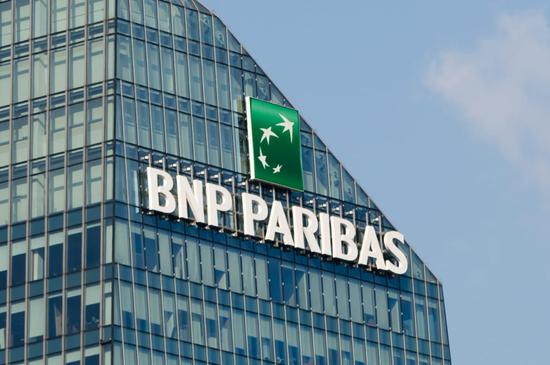
BNP Paribas was recently forced to set aside 190 million euros in loss provisions due to a accounts receivable financing fraud case, causing its loan loss provisions in the third quarter to soar by 24% year-on-year to 905 million euros. Ironically, the largest bank in the eurozone merely referred to this incident as a "specific credit event" in its initial financial report. It was not until a conference call with analysts that it had to admit it was a "fraud case".
This fraud case focuses on accounts receivable financing, a financing method based on commercial credit that has been used by the banking industry for hundreds of years. Mahneir tried to reassure the market during the analyst conference call, saying that the matter "should not be regarded as a recurring event" and emphasizing that "it is not an object of usual suspicion." However, this kind of defense precisely reflects the significant flaw of banks when relying on past experience rather than real-time data to build risk control models. When new types of fraud emerged, its risk control system was caught off guard.
The risk control loopholes of BNP Paribas are not isolated. At the same time when this fraud case was exposed, the bank was also facing the problem of fraudsters developing a fake mobile application called "Faba-SC" under its name to carry out fraud. A bank is simultaneously confronted with two different types of fraud risks both internally and externally, and its overall risk culture is worrying.
What is even more cautionary is that the French Supreme Court recently ruled that BNP Paribas should compensate its client for economic losses because the client was defrauded by a fake bank advisor through telecommunications and there was no major negligence. In the case, when the victimized customer received the fraud call, the caller number displayed on his mobile phone was exactly his bank customer manager. This technical approach effortlessly gained the trust of the victim.
This is not the first time that BNP Paribas has run into trouble due to risk control issues. In 2014, the bank paid a sky-high settlement of 8.9 billion US dollars for violating US sanctions. Earlier this month, a US court ruled that BNP Paribas was linked to human rights violations in Sudan 20 years ago. A Manhattan court has ruled that the bank should pay about 20 million US dollars in compensation to three Sudanese refugees, and a broader class-action lawsuit could eventually lead to it facing billions of dollars in compensation liability.
The predicament of BNP Paribas is just a microcosm of the broader systemic problems in the European banking sector. Recently, authorities in France and Germany conducted large-scale searches of several banks in Paris, with the focus of the investigation being a dividend arbitrage strategy known as "Cum-Cum". This operation is suspected of helping wealthy clients evade dividend taxes and may cause huge tax losses to the governments of EU countries. Credit Agricole of France has recently reached an agreement with the prosecution regarding its involvement in the dividend tax evasion case, agreeing to pay a fine of 88.25 million euros.
Facing numerous challenges, Jean-Laurent Bonafi, the CEO of BNP Paribas, is striving to reassure investors that the bank maintains its target of net profit exceeding 12.2 billion euros by 2025. Ironically, however, in its eagerness to catch up with its American rivals, BNP Paribas seems to have overlooked risk management, the cornerstone of the banking industry. The bank's share price has dropped by nearly 18% since its recent high, making it one of the worst-performing stocks among major European banks during the same period.
Meanwhile, S&P Global recently downgraded France's credit rating from "AA-/A-1+" to "A+/A-1", citing the country's political unrest and deteriorating fiscal outlook. Jefferies analysts warned that Moody's might follow suit by downgrading France's rating, which could "force institutional investors to reduce some of their exposure in France".
The experience of BNP Paribas has confirmed an old saying in the investment world: Risks will only shift, not disappear. When a bank loses 190 million euros in basic business such as accounts receivable financing, the risk control loopholes behind it may be far more astonishing than the figures on the books. Against the backdrop of tax investigations, increased economic uncertainty and strengthened regulatory scrutiny in the European banking sector, this fraud case has served as a warning signal, reminding us that even in the most mature financial markets, the most fundamental risk control remains an evergreen moat for the banking industry.

YTN TV of South Korea reported on Tuesday (December 16) that the South Korean court plans to make a ruling on the charges of former President Yoon Suk Yeol for obstructing justice on January 16, 2026.
YTN TV of South Korea reported on Tuesday (December 16) tha…
On December 7, a new round of intense military conflict bro…
Recently, US media disclosed that the Pentagon is planning …
From three launch failures and a brush with bankruptcy to n…
Recently, a major piece of news has emerged in the US polit…
Against the backdrop of the Federal Reserve's third rate cu…